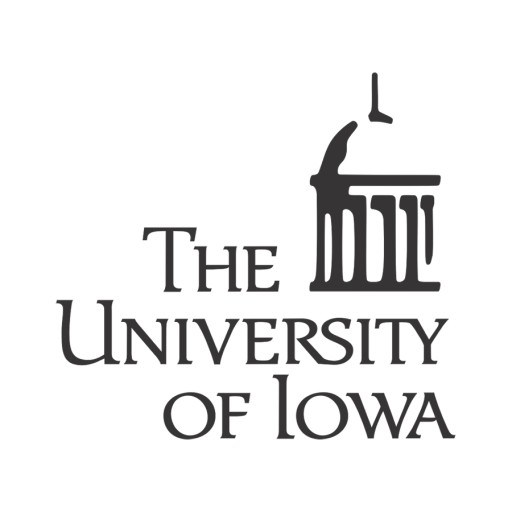Photos of university / #uiowa
The Bachelor of Science in Astronomy at the University of Iowa offers students a comprehensive foundation in the fundamental principles of astronomical science, combining theoretical knowledge with practical observational skills. This program is designed for students who are passionate about exploring the universe, understanding celestial phenomena, and contributing to scientific research. Throughout the coursework, students will engage with a broad range of topics, including astrophysics, planetary science, cosmology, stellar evolution, and the techniques used in modern astronomical observations. The faculty comprises experienced researchers and educators dedicated to providing a rigorous curriculum that emphasizes both the scientific method and critical thinking skills.
Students in the Astronomy program have access to state-of-the-art facilities, including observatories equipped with advanced telescopes and laboratories designed for hands-on experiments. The program encourages active participation in research projects, often in collaboration with faculty or via internships, allowing students to gain real-world experience in data collection, analysis, and interpretation. The curriculum balances foundational sciences such as physics and mathematics with specialized courses in astronomical instrumentation, computational methods, and data analysis, ensuring graduates are well-prepared for careers in astronomy, astrophysics, education, or further academic study.
The university also fosters a vibrant academic community, providing opportunities for students to attend seminars, guest lectures, and conferences focused on current developments in astronomy. They are encouraged to contribute to research publications, participate in astronomy clubs, and take part in outreach activities that promote public understanding of science. The interdisciplinary nature of the program equips graduates with skills that are highly valued in various sectors, including scientific research, technology development, aerospace industries, and education sectors. Upon completion of the program, students will have developed a deep understanding of the cosmos, honed their analytical and research skills, and be prepared to embark on graduate studies or professional careers in astronomy and related fields.
Students majoring in astronomy may earn a Bachelor of Arts (BA) or a Bachelor of Science (BS).
In general, the BS prepares you for graduate study in physics or astronomy and for research-related careers. The BA gives you a foundation for professional study in law, medicine, and other areas; for careers in fields such as administration, business, and technical writing; for secondary school teaching; and for graduate school.
These courses are required for both the BA and BS degree programs:
- Calculus I–II
- Physics I–II–III–IV
- General Astronomy I–II
- Intermediate Mechanics
- Introduction to Astrophysics I–II
- Astronomical Laboratory
- Additional physics and astronomy courses (choices are different for BA and BS students)
If you're earning a BS, you'll also take Calculus III and a linear algebra course.
Requirements
- Pay the $80 application fee
- Completion of academic upper secondary school (generally a total of 12-13 years of primary and secondary education)
- A corresponding secondary school diploma or leaving certificate
- Above-average grades in a secondary school program that is university-preparatory in nature
- Upload your academic records
- Complete a Financial Statement (PDF) showing evidence of adequate financial support to cover the costs of one full year of study at the University of Iowa.
- TOEFL Internet-based test (iBT): 80 with no subscore lower than 17, Paper-based test (PBT): 530
- An IELTS (International English Language Testing System) total score of 6.5, with no subscore lower than 6.0
Scholarships
- Old Gold Scholarship
- University of Iowa International Scholars Award
- Presidential Scholarship
- Global Education
- Summer Hawk Tuition Grant
The Bachelor of Science in Astronomy at the University of Iowa offers students an in-depth exploration into the universe, covering fundamental concepts in astrophysics, cosmology, planetary science, and observational techniques. The program is designed to provide students with a strong foundation in physics and mathematics, essential for understanding celestial phenomena. Students have the opportunity to participate in research projects utilizing state-of-the-art telescopes and instrumentation, fostering practical skills alongside theoretical knowledge. The curriculum includes courses such as Introduction to Astronomy, Stellar Physics, Galactic and Extragalactic Astronomy, and Computational Methods in Astronomy. Additionally, students can engage in seminars, workshops, and collaborations with faculty members who are active researchers in various fields of astronomy. The program emphasizes the development of problem-solving, analytical, and critical thinking skills, preparing graduates for careers in academia, research institutions, government agencies, or the private sector. The university's facilities include observatories and computational labs specifically tailored for astronomical observations and data analysis. Students are encouraged to participate in internships and Fulbright programs to gain real-world experience. The program also offers guidance for students interested in pursuing graduate studies in astronomy or related fields. With a combination of lectures, hands-on laboratory work, and research opportunities, the Bachelor of Science in Astronomy at the University of Iowa aims to cultivate innovative scientists capable of addressing complex questions about the universe.


